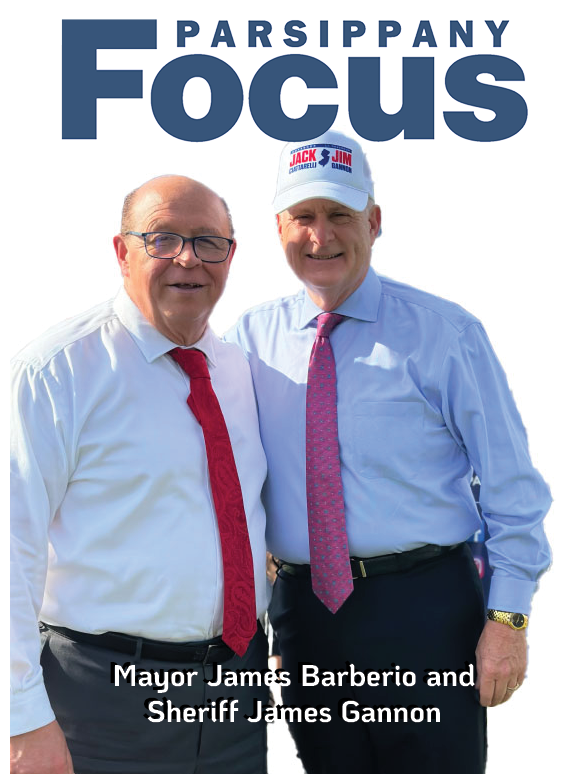What Are PILOTs?
The Long-Term Tax Exemption Law, N .J .S.A. 40A:20-1 et seq., authorizes Long Term Tax Exemptions and was created to help NJ municipalities efficiently and responsibly improve their ratable base and redevelop properties that meet the standard for an Area in Need of Redevelopment.
PILOTs (Payment In lieu of Taxes) can be a useful tool to bring new investment to the Town and yield benefits to our current and future residents. In lieu of paying property taxes on the improvements created by the project, the redeveloper makes annual service charges known as “payments in lieu of taxes” or “PILOTs” which are based on a percentage of annual rental income generated from the project. As rental income increases, the payments made to the municipality increase.
When and Why Are They Used?
PILOTS are used to provide an incentive to a redeveloper to undertake and complete specific projects, sometimes to fulfill a municipality’s affordable housing requirement, to minimize or change the scope of the project from what could be approved, or on a property with environmental problems. They are used in conjunction with areas designated for redevelopment that are underutilized, dilapidated, or otherwise meet the standard for an Area in Need of Redevelopment.
The redeveloper must evidence that but for the tax abatement, the project would not proceed as designed. Without the use of this tool, the project would not be economically feasible in its current form, yielding an inadequate rate of return. The redeveloper also benefits by having predictable, stable payments over a long-term period. This stability is often necessary for the redeveloper to be able to obtain bank financing for the project.
Parsippany and many other communities have utilized PILOTs to avoid high-density Affordable Housing projects or to change the scope of a project to a more appealing use for the community.
Why would the Township of Parsippany negotiate PILOT agreements with developers?
Parsippany is the largest suburban and third-largest corporate center in New Jersey. According to our Tax Assessor, the Township’s vacancy rate has doubled from prepandemic times.
Not only have overall costs and interest rates increased significantly but remote and hybrid work trends have taken their toll on office buildings. Couple the value depreciation with the strain the banking sector is feeling due to the collapse of major banks, and the result is pressure on most financial institutions and a much tighter financial market.
As remote work has become a mainstay rather than a trend, commercial real estate occupants have had to shift their strategies to reduce space and utilize it better with new, state-of-the-art facilities. A recent survey shows 75% of companies plan to reduce office square footage in 2024, compared to 46% in 2022 (Mollman, 2023). Companies are rapidly downsizing their offices and pivoting their strategies to increase value and reduce fallout by exploring alternatives. This year, the Township has been successful in convincing two large companies faced with the need to downsize to remain in our community in a new space. Remaining competitive is the most important tax tool for our residents.
Redevelopment can go a long way towards attracting new residents and businesses, stabilizing taxes, and ensuring the Township can maintain better and more services than other neighboring municipalities for all Parsippany residents. Redevelopment is a necessity so vacant or underutilized properties do not become a burden on township services and result in residents being overburdened with picking up the portion once covered by commercial properties.
The Township needs to remain competitive in the marketplace and with surrounding towns offering PILOTs to developers. The incentives cause redevelopment projects to occur which allows new revenues to be generated.
Are we able to predict the amount of revenue the Township will receive?
Once the developments have been constructed and occupied according to the parameters of the PILOT agreement, the Township will start to receive the full PILOT payments, otherwise known as an ‘annual service charge’. The ‘annual service charge’ is based on gross revenue (i.e., rent, parking, storage, amenity fees, etc.) and will be audited and evaluated routinely to ensure calculations are done correctly. Regardless of any issue or vacancy at the property, the Township still gets paid these annual minimum amounts.
To predict the amount of revenue, it is important to work from the most accurate information as possible. The Township utilizes the services of a financial expert to analyze the data from a redeveloper and like projects in our and neighboring communities when considering financial agreements.
How is a PILOT different from the taxes I pay on my property?
Taxes on traditionally taxed properties are based on an assessment of what that property is worth today and can vary widely from year to year depending upon that assessment and the current tax rate. Payments under a PILOT are designed to be stable over time. Generally, PILOTs are based on a percentage of the cost of the project, or more commonly 10 to 15% of the project’s annual gross revenue. By basing the PILOT payments on the project’s revenues, the Township shares in the success of the project as rents increase over time.
What happens if we do not offer PILOTs?
There will be projects that cannot achieve financial feasibility and as a result, tax revenue will continue to decline because the existing uses are continually losing value. A large majority of surrounding municipalities have redeveloped by offering PILOTs to redevelopers. Utilizing this tool to create negotiating leverage to attract new developments, and to help offset the tax burden of our residential taxpayers is becoming a more essential option. In this market, redevelopers may not be able to secure financing for large-scale projects without PILOTs, forcing marketable properties vacant and deteriorating.
Is the school district negatively impacted by a PILOT revenue structure?
Support for Parsippany Public Schools is a top priority of the Administration. Discussions are ongoing with the Board of Education to collaboratively explore how best to use PILOT funds to support the growing needs of the Township, including the school district.
The Board of Education is guaranteed its budget regardless of what the municipality collects. Each year, the school district receives 100% of its budget (with annual increases capped at 2%) through traditional taxation. Changes in municipal receipts to the positive or negative do not affect that budget.
The schools are not harmed because under state law, PILOTs do not exempt a developer from all property taxes. In a PILOT agreement, developers are still responsible for paying taxes on the value of the land, so the schools continue receiving their portion of the land taxes.
Do we know how many school children will be added to our school system from new redevelopment projects?
The anticipated number of school children from new residential units is dependent on numerous factors, including rental costs, number of bedrooms available, construction quality, level of amenities, and more. Studies conducted by the Center for Urban Policy Research at Rutgers University, the Joint Center for Housing Studies at Harvard University, and current demographic information from existing projects here in Town and other New Jersey municipalities have shown that the number of school-age children in multi-family housing is dramatically lower than that which comes from detached single-family dwellings.
Using the conservative demographic multipliers contained in a study prepared by Rutgers Blaustein School in 2018, it is projected that housing redevelopment projects generate predictable counts of public school children, and warehouse or commercial redevelopment projects do not generate public school children.
The additional students, if any, does not happen all in the same class or in one grade, and is not likely to require any expansion of capacity or capital improvements at the schools. What it costs to currently operate Parsippany schools will therefore be generally the same. The school budget will remain what it is today plus the 2% annual increase (plus banked cap, if applicable). Therefore, no shortfall or financial burden would be experienced when the new units are occupied. The Board of Education has exact statistics on how many public school students come from each property in Town, and that data should be compared to similar future projects.
How else will the Township benefit from these PILOT agreements?
The 30-year term of PILOTs provides a new, substantial, and reliable source of revenue that directly supports the municipal budget, helping to keep resident taxes down.
Most developers agree to be responsible for their snow removal and garbage/recycling collection which can equate to an annual savings of over $100,000 for the Township.
Do other neighboring towns have PILOT agreements?
PILOTS have become prevalent throughout the State for similar reasons with at least 50 PILOT agreements in Morris County. Neighboring towns like Boonton, Montville, Denville, Hanover Township, and Florham Park, to name a few, have such agreements.
Are PILOTS a windfall for the developer over time?
PILOTs are based upon a percentage of revenue and agreements have proVIs10ns prohibiting excess profits. The developers must submit audited financial statements every year to confirm compliance. In the event that the Project produced profits over the maximum allowed under the law, the Redeveloper would be forced to remit those profits to the municipality.
What happens at the end of 30 years?
Upon expiration of the tax abatement, the project returns to conventional taxation. There are also mandated step-ups to full taxation through Year 30.











